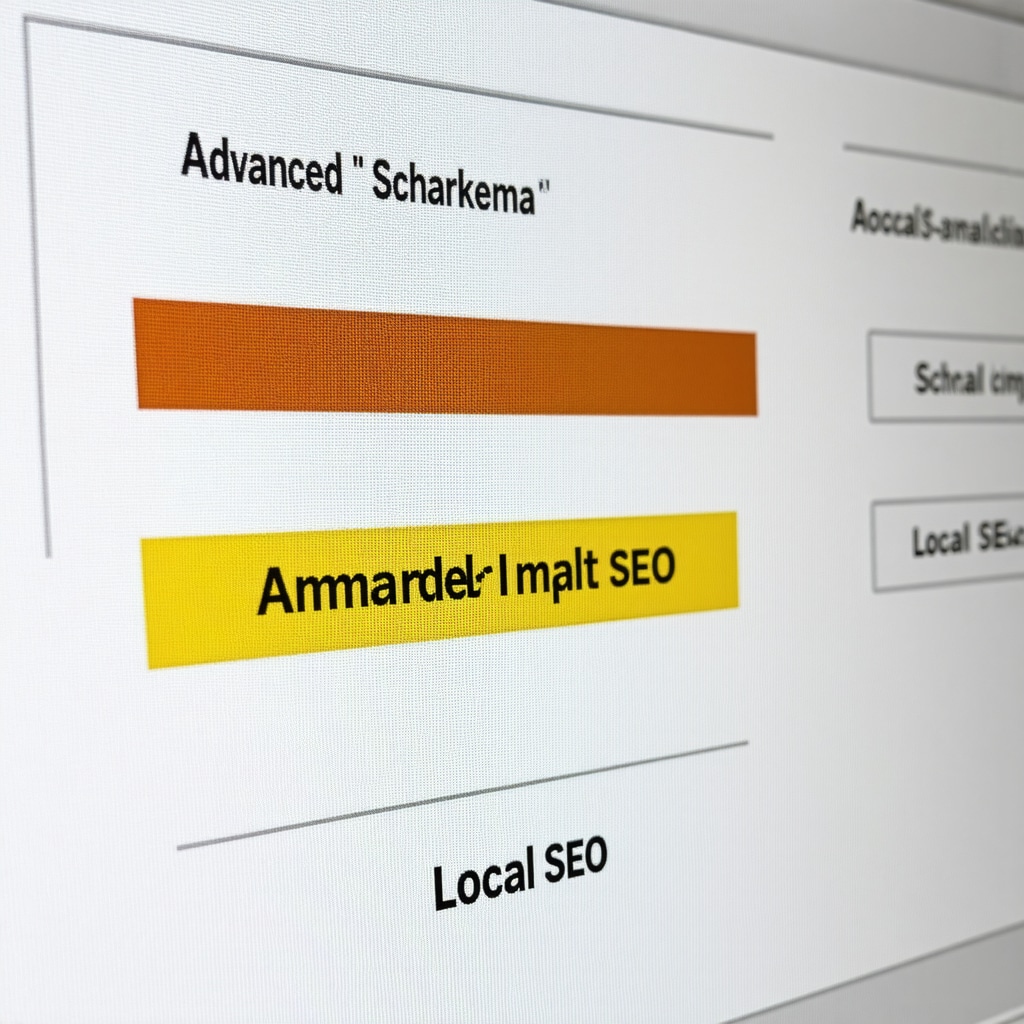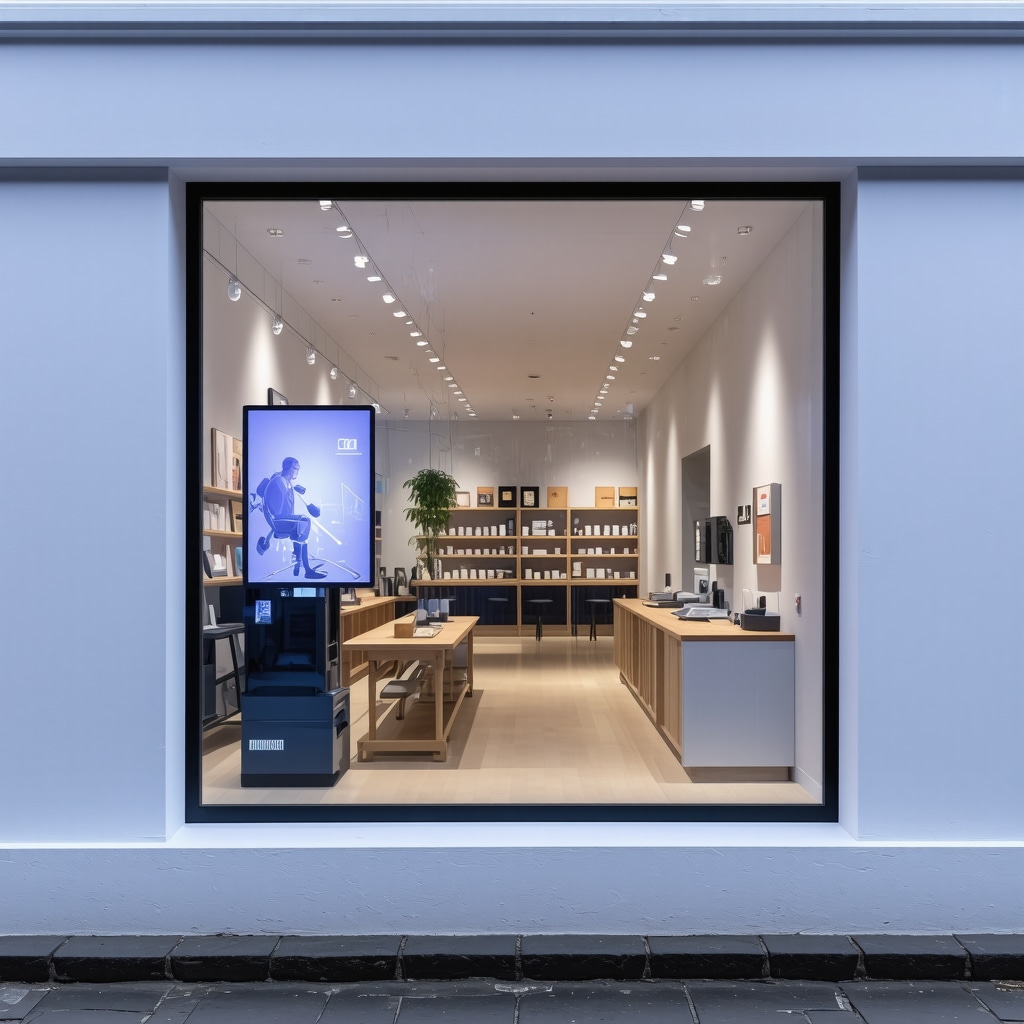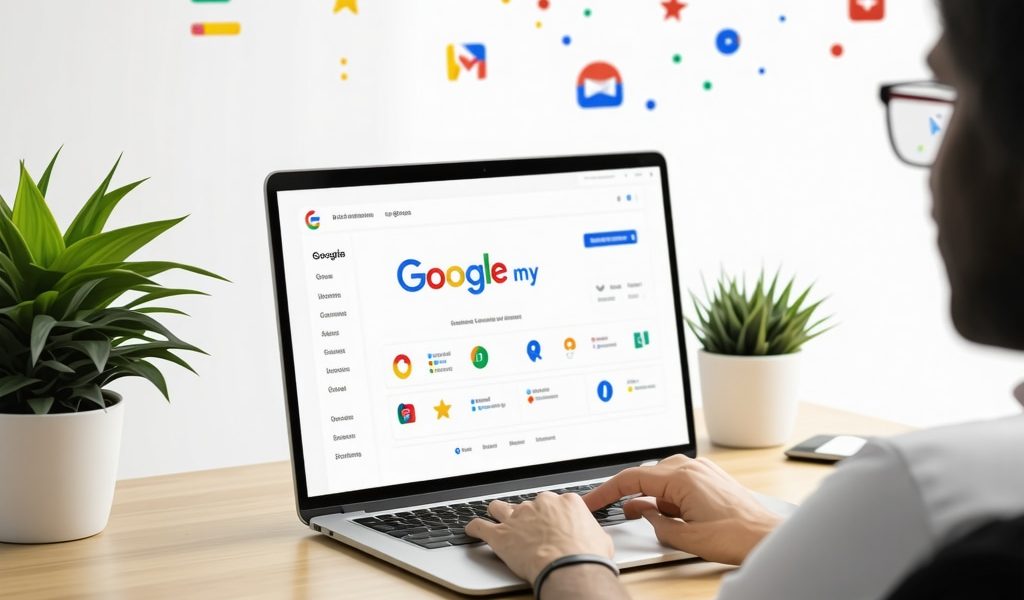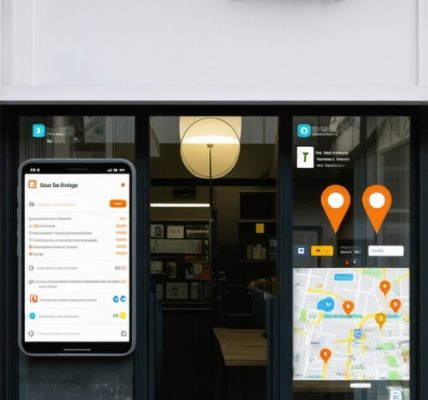Unlocking the Full Potential of Google My Business SEO: An Advanced Perspective
In the dynamic landscape of local search optimization, Google My Business (GMB) remains a cornerstone for enhancing visibility and attracting targeted traffic. For beginners, navigating this terrain can seem daunting, yet an expert approach reveals nuanced strategies that can elevate your local SEO efforts significantly. This guide aims to provide an in-depth, analytical perspective on how to systematically optimize your GMB profile, leveraging cutting-edge techniques and data-driven insights.
The Criticality of Semantic SEO in GMB Optimization
Semantic SEO, which emphasizes the contextual relevance of keywords and content, is pivotal in GMB SEO. Understanding how search engines interpret local queries involves analyzing latent semantic indexing (LSI) keywords such as “local business visibility,” “Google Maps rankings,” and “local search algorithms.” Integrating these into your GMB profile enhances relevance and authority, especially when combined with rich, structured data.
Implementing a Holistic GMB SEO Audit for Superior Local Rankings
Before deploying optimization tactics, conducting a comprehensive GMB audit is indispensable. This involves analyzing citation consistency, review management practices, and profile completeness. Tools like BrightLocal can facilitate this process, revealing gaps and opportunities that, when addressed, dramatically improve local pack rankings. An expert-level audit not only assesses technical accuracy but also evaluates user engagement metrics and competitive positioning.
Expert-Level Content Optimization Strategies for GMB Profiles
Optimizing GMB descriptions, categories, and attributes requires a strategic, data-informed approach. Incorporating primary and secondary keywords naturally, while maintaining readability, is essential. Furthermore, leveraging content updates, such as weekly Google Posts, can increase engagement and signal activity to search engines. According to Moz’s Local Search Ranking Factors, consistency in NAP (Name, Address, Phone Number) and high-quality review acquisition are among the most influential factors for local SEO success.
Can Advanced GMB Optimization Techniques Outperform Traditional Tactics?
What are the most effective methods for surpassing competitors in local search rankings using GMB?
Advanced strategies include leveraging schema markup, generating high-quality reviews, and utilizing GMB insights for iterative improvements. Employing structured data enhances your visibility in rich snippets, while review management fosters trust and social proof. Additionally, integrating GMB with broader local SEO efforts, such as citation building and backlink outreach, creates a synergistic effect that can propel your rankings beyond competitors.
For a comprehensive understanding of these techniques, explore our detailed guide on local SEO for small businesses. Continuous learning and adaptation to algorithm updates are vital to maintaining an authoritative presence in local search results.
Engage with industry peers or contribute your insights on emerging GMB optimization tactics by visiting our contact page.
Refining Your GMB Strategy with Data-Driven Insights
In the realm of local SEO, leveraging analytics is no longer optional—it’s essential. Advanced tools like Google My Business Insights provide granular data about customer interactions, search queries, and engagement patterns. By analyzing this data, businesses can tailor their optimization efforts to target high-intent keywords, optimize posting schedules, and refine service descriptions for maximum relevance. This approach aligns with the guidance from authoritative sources such as Moz, emphasizing the importance of continuous data analysis for sustained local search success.
Can Hyper-Local SEO Personalization Outperform Generic Tactics?
One emerging trend among experts is hyper-local SEO personalization. This involves customizing your GMB content, images, and offers based on specific neighborhoods, demographics, or even real-time events. For example, using geotargeted keywords in your Google Posts or optimizing service areas with hyper-specific locations can significantly boost visibility in nearby searches. This nuanced approach challenges the traditional one-size-fits-all tactic, offering a competitive edge in densely populated markets. For actionable strategies, explore our comprehensive guide on local SEO for small businesses.
How can integrating voice search optimization influence your GMB rankings in 2025?
With the rise of voice-activated devices, optimizing your GMB profile for voice search is becoming increasingly crucial. Voice searches often involve natural language queries like “best coffee shop near me” or “24-hour locksmith in downtown.” Incorporating conversational keywords, FAQs, and structured data can make your business more discoverable through voice assistants. According to Search Engine Journal, aligning your content with voice search intent can dramatically improve local visibility, especially as more consumers rely on voice commands for quick local information.
For more detailed insights into emerging local SEO trends, consider reading our article on mastering local SEO in 2025.
Engaging with industry peers and sharing your experiences can also accelerate your learning curve. Join discussions or forum groups focused on local SEO advancements to keep your strategies ahead of the curve.
Leveraging Structured Data for Hyper-Targeted Local Visibility
One of the most sophisticated techniques for elevating your GMB profile is the implementation of schema markup tailored specifically for local businesses. Schema.org provides a comprehensive framework that allows search engines to better understand your business details, including location, services, and operational hours. Implementing LocalBusiness schema with accurate, detailed microdata can enhance your appearance in rich snippets, map packs, and even voice search results. A study by Schema App indicates that businesses utilizing schema markup see an average increase of 30% in click-through rates from local search results, underscoring its importance in a competitive landscape.
Integrating AI-Powered Review Generation and Management
In the realm of reputation management, harnessing AI tools to solicit, generate, and respond to reviews can be a game-changer. Advanced sentiment analysis algorithms can identify patterns in customer feedback, allowing you to proactively address issues before they escalate. Moreover, AI-driven review generation platforms can help solicit authentic reviews from satisfied customers through personalized messaging, boosting review volume and quality. According to BrightLocal’s Local Consumer Review Survey, businesses with at least 50 reviews see a 30% higher likelihood of appearing in the local pack, making review strategy a cornerstone of advanced GMB SEO.
How does a Multi-Channel Data Integration Enhance GMB Optimization?
What are the benefits of integrating customer data from multiple sources to refine local SEO strategies?
Integrating data from CRM systems, social media analytics, and POS platforms enables a holistic view of customer behaviors and preferences. This multi-channel approach allows for hyper-local targeting, personalized marketing campaigns, and precise keyword optimization based on actual customer inquiries. For instance, analyzing POS data can reveal peak service hours and popular offerings, which can be highlighted in Google Posts or GMB attributes. The integration also facilitates the automation of review requests and customer engagement efforts, leading to increased local relevance and improved rankings. Experts like Neil Patel emphasize that data-driven personalization is the future of local SEO, especially when combined with AI and automation tools.
< >
>
Utilizing Advanced Competitor Analysis for Strategic Positioning
Conducting an in-depth competitor analysis using tools like SEMrush or Ahrefs can uncover gaps and opportunities in your local SEO landscape. By evaluating competitors’ GMB profiles, backlink profiles, and keyword strategies, you can identify underserved niches or emerging keywords that your rivals have yet to target. This intelligence allows for strategic content creation, service diversification, and targeted local campaigns that can give you a decisive edge. Furthermore, tracking competitors’ review patterns and engagement levels provides insights into their customer relationship management tactics, enabling you to craft more compelling and trustworthy interactions.
Future-Proofing Your GMB Strategy with Emerging Technologies
Emerging technologies like augmented reality (AR) and augmented reality (AR) integration into local search are poised to redefine the landscape. Businesses experimenting with AR-enabled virtual tours or interactive signage linked to GMB profiles can create immersive experiences that differentiate them from competitors. Additionally, voice AI advancements will continue to influence how local queries are interpreted and prioritized. Staying ahead requires continuous adaptation—embracing not only current best practices but also investing in experimental technologies that align with evolving consumer behaviors. For a comprehensive strategy, refer to authoritative sources such as Moz’s latest Local Search Ranking Factors report and Google’s official developer documentation on schema and API integrations.
Interested in transforming your local SEO approach? Engage with our expert community, participate in webinars, or explore tailored consulting services to unlock your business’s full potential in local search dominance.
Harnessing the Power of AI for Hyper-Localized Content Customization
As local search algorithms grow increasingly sophisticated, integrating artificial intelligence (AI) to personalize GMB content in real-time offers a formidable competitive advantage. AI tools can analyze customer demographics, search trends, and behavioral data to automatically generate tailored Google Posts, service descriptions, and promotional offers that resonate with specific neighborhood audiences, thereby boosting engagement and local relevance.
What Are the Cutting-Edge Techniques for Leveraging AI-Driven Local SEO?
Utilizing machine learning models to predict emerging local keywords, optimize for voice search, and refine schema markup implementation ensures your GMB profile stays ahead of algorithm shifts. For example, deploying natural language processing (NLP) algorithms can help craft FAQs that align precisely with how prospective customers articulate their needs, increasing your chances of appearing in rich snippets and voice assistant responses.
Integrating Blockchain for Verified Customer Engagement and Review Authenticity
Blockchain technology presents an innovative avenue for guaranteeing the authenticity of reviews and customer interactions. By creating a decentralized ledger of verified transactions and feedback, businesses can combat review manipulation, foster trust, and elevate their reputation signals. This transparency not only enhances user confidence but also signals to search engines a commitment to integrity, which can positively influence local rankings.
How Does Blockchain Reinforce Your GMB Review Strategy?
Implementing blockchain-based review verification systems ensures all feedback is tamper-proof and genuinely reflects customer experiences. This approach aligns with Google’s emphasis on review authenticity and can serve as a differentiator in highly competitive markets, ultimately leading to higher review volumes and improved local pack visibility.
Advanced Competitor Analysis Using AI and Big Data Analytics
Employing AI-powered analytics platforms enables granular competitor insights, including sentiment analysis of reviews, backlink profiles, and keyword strategy evolution. These tools can identify hidden gaps in your market niche or untapped service areas, guiding strategic content and service diversification to outpace rivals. For instance, leveraging predictive analytics can forecast upcoming local demand trends, allowing proactive positioning.
What Are the Future Directions in Local Search Optimization Technology?
Emerging innovations such as augmented reality (AR) overlays and IoT integrations promise to revolutionize local search experiences. Businesses experimenting with AR-enabled virtual tours or real-time location-based offers embedded into smart city infrastructure will set new standards for engagement. Staying abreast of these developments through authoritative sources like Google’s developer updates and industry think tanks is essential for long-term success.

Expert Insights & Advanced Considerations
1. Embrace Hyper-Personalization
Utilize hyper-local data to tailor GMB content, such as geotargeted posts and offers, to specific neighborhoods or demographics, boosting engagement and relevance.
2. Leverage AI and Machine Learning
Implement AI tools for predictive keyword research, dynamic content creation, and sentiment analysis to stay ahead of algorithm changes and consumer trends.
3. Integrate Blockchain for Review Authenticity
Adopt blockchain verification systems to ensure review integrity, building trust with consumers and search engines alike, which can positively influence rankings.
4. Expand Multi-Channel Data Integration
Combine CRM, POS, and social media analytics for comprehensive insights, enabling highly targeted local SEO campaigns that reflect real customer behaviors.
5. Explore Emerging Technologies
Stay at the forefront by experimenting with AR, IoT, and voice AI integrations to create immersive local experiences and optimize for voice search.
Curated Expert Resources
- Google’s Official Developer Documentation: Offers authoritative guidance on schema markup, API integrations, and evolving features.
- Moz’s Local SEO Guide: Provides in-depth strategies and latest trends in local search optimization tailored for experts.
- BrightLocal’s Review Management Tools: Leading platform for authentic review generation and reputation management insights.
- Schema.org: The essential resource for implementing structured data to enhance search visibility.
- SEMrush and Ahrefs: Industry-standard tools for competitive analysis, keyword research, and backlink profiling.
Final Expert Perspective
In the realm of advanced GMB SEO, integrating cutting-edge technologies such as AI, blockchain, and AR into your local strategy can create a formidable competitive advantage. Embracing hyper-local personalization and comprehensive multi-channel data analysis ensures your business remains adaptable and authoritative in 2025 and beyond. To deepen your expertise, explore authoritative resources, continuously test innovative tactics, and engage with industry thought leaders. Your proactive approach will define your dominance in local search results—so stay curious, stay strategic, and lead with expertise.
,



